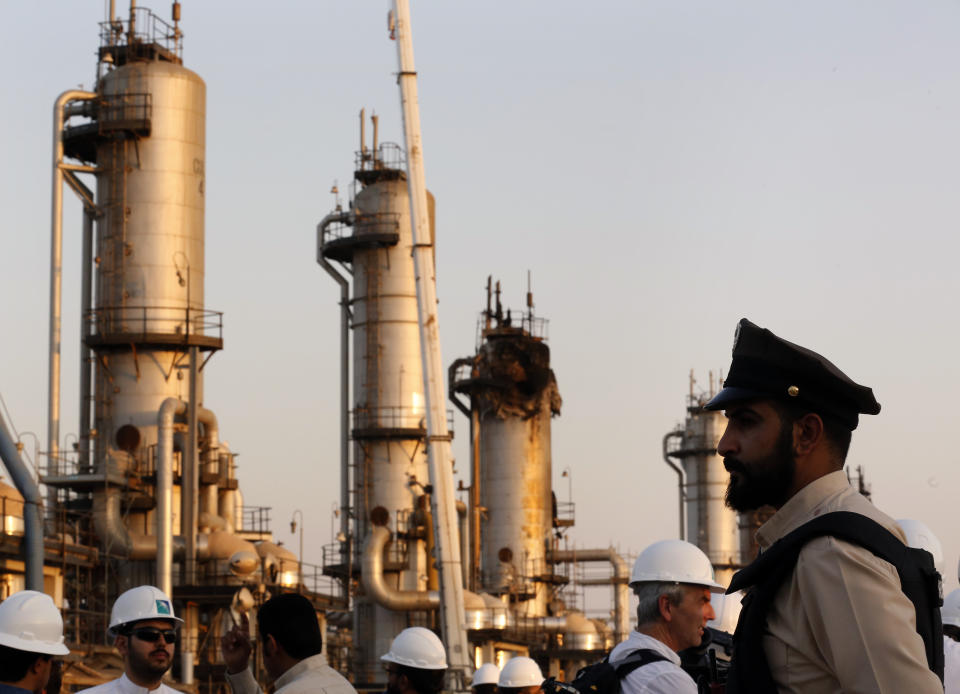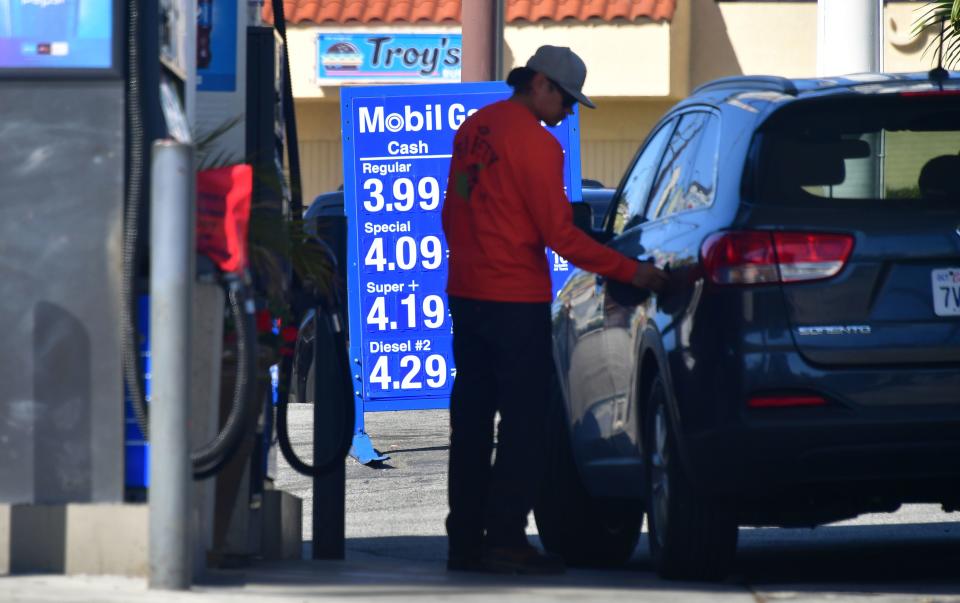How Iran could threaten Trump’s reelection
Iran is on its heels. U.S. sanctions have sharply cut Iranian oil sales, with the Iranian economy shrinking by 3% to 6%. Inflation is at least 40%. President Trump tightened the screws further on Sept. 20, with new sanctions on Iran’s national bank.
But Iran is still dangerous and capable of causing problems that reach far beyond its borders. It may even have plans to derail the 2020 reelection effort of its new arch-nemesis, President Donald Trump.
The recent attacks on Saudi oil facilities—launched either by Iran or Iranian subordinates in the region—reveal Iran’s ability to wreck oil infrastructure and drive up oil prices. The effect, this time, was fleeting. Oil prices spiked by about 12% following the strike, then fell about halfway back to pre-strike levels in following days.
But many analysts doubt the attack was a one-off. “While Tehran will likely not immediately repeat an attack on the scale of the Aramco strikes,” the Eurasia Group predicts, “it will likely continue low-level attacks on oil and gas infrastructure—such as going after tankers and pipelines—which will cause anxiety in an already tense environment.”

Iran’s recent belligerence stems directly from Trump’s decision to scuttle the Iran nuclear deal his predecessor, President Obama, agreed to in 2015. Under that deal, Iran would suspend development of nuclear weapons while the United States and other western countries lifted sanctions. Trump pulled out of that deal last year and reimposed sanctions, despite protests from other nations that signed the deal.
Iran has been making trouble ever since, seizing oil tankers in the Persian Gulf and attempting to mine at least one. The Sept. 14 missile and drone attack on Saudi oil facilities was the boldest move yet, temporarily knocking out 5% of the world’s oil supply. Saudi officials repaired some of the damage quickly, but the attack revealed gaping vulnerabilities in Saudi critical infrastructure.
The situation may quiet down for a while, now that Iran has gotten the world’s attention and the United States has responded with new sanctions. But some Trump critics, who feel sanctions are too feeble, are calling for U.S. military action instead. That might be just what Iran wants, since it would embroil the United States in yet another unwinnable Middle East war and probably send oil prices soaring.
Forcing oil prices higher
Iran wins if it can force oil prices up, since that causes pain to the United States and boosts revenue from the reduced amount of oil Iran is still selling. If Iran pushed oil prices high enough, it would add to Trump’s mounting woes and endanger his reelection, since it would push gas prices up and hurt U.S. businesses dependent on oil.
The United States produces much more oil than it used to, and is no longer dependent on imported energy. Since oil is a global commodity, however, a shortage anywhere affects prices everywhere. If Iran could crimp oil production in the weeks prior to the 2020 election, it would push gas prices up and cause Trump a problem with voters (in addition to all the other problems he has).

U.S. pump prices are around $2.67 per gallon right now, and they could briefly rise a bit on the recent spike in oil prices. Any price under three bucks is generally fine with American drivers. If prices rose to $3.50 and stayed there, it would get people’s attention, denting wallets and confidence. The real panic zone is $4 and up, last seen in 2011. At that level, the high cost of gas drains family budgets and causes tradeoffs that hurt the broader economy.
It’s not clear if Iran could cause enough trouble to push gas prices that high. Iran probably has the capability to close the Strait of Hormuz, plugging the route through which 20% of the world’s oil supply passes on its way to market. U.S. and allied naval forces would be able to reopen the strait. Even if they did, however, ongoing hostilities would place a steep fear premium on oil prices.
Trump’s apparent aversion to military retaliation against Iran may reflect his worry over Iran’s troublemaking ability. But he may not have a choice in the matter. Iran knows well how to instigate low-grade mayhem while biding its time. A year from now, the Iranian economy will probably be hurting more than it is now. But that could make Iran even more determined to hurt Trump back with a nasty election-eve surprise. Trump may never see it coming.
Rick Newman is the author of four books, including “Rebounders: How Winners Pivot from Setback to Success.” Follow him on Twitter: @rickjnewman. Confidential tip line: rickjnewman@yahoo.com. Encrypted communication available. Click here to get Rick’s stories by email.
Read more:
The rich should get ready for Warren’s wealth tax
Trump’s trade war has killed 300,000 job
Democrats are attacking the wrong companies
Trump’s biggest gamble yet: tax hikes before an election
Obama was better for your 401(k) than Trump has been
Read the latest financial and business news from Yahoo Finance
Follow Yahoo Finance on Twitter, Facebook, Instagram, Flipboard, SmartNews, LinkedIn, YouTube, and reddit.

